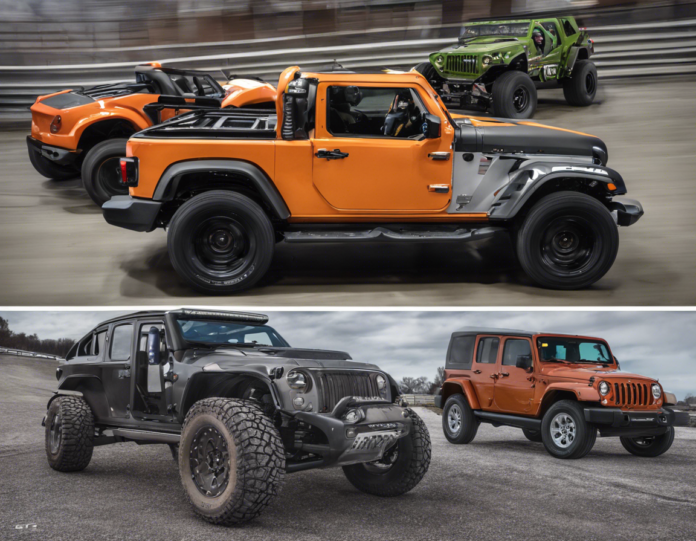When it comes to music, two instruments that often stand out are the guitar and the keyboard. Both are versatile, widely used, and offer unique sounds that can greatly influence a musical composition. Whether you are a musician trying to decide between the two, a music enthusiast curious about the differences, or simply interested in learning more about these instruments, this article will explore the key dissimilarities between a guitarist and a keyboardist.
Technical Differences
1. Playing Technique
- Guitar: Guitarists use their fingers or a pick to pluck or strum the strings.
- Keyboard: Keyboardists use their fingers to press keys that trigger hammers to strike strings or produce electronic sounds.
2. Sustain
- Guitar: The notes played on a guitar have a natural sustain.
- Keyboard: The sustain on a keyboard is controlled by the player using a pedal.
3. Polyphony
- Guitar: Generally monophonic, meaning one note at a time.
- Keyboard: Keyboards can produce multiple notes simultaneously, varying from instrument to instrument.
Sound Differences
1. Tone
- Guitar: The tone of a guitar can be altered using effects pedals, amps, and different playing techniques.
- Keyboard: Keyboards offer a wide range of preset tones and effects that can be easily accessed.
2. Expression
- Guitar: Guitarists can bend notes, use vibrato, and apply various techniques to add personal expression to their playing.
- Keyboard: While keyboards lack the physical capabilities of bending strings, they offer modulation wheels, pitch bends, and aftertouch for expressive playing.
3. Sound Variation
- Guitar: Different types of guitars (acoustic, electric, resonator) offer a wide range of sounds.
- Keyboard: Keyboards can emulate various instruments like pianos, organs, synths, and more.
Performance Differences
1. Portability
- Guitar: Guitars are compact and easy to carry around compared to keyboards.
- Keyboard: Keyboards come in different sizes, from portable MIDI controllers to full-sized stage pianos.
2. Live Performance
- Guitar: Guitarists can move around on stage, interact with the audience, and be more visually engaging.
- Keyboard: Keyboards are stationary instruments, limiting movement during live performances.
Role in a Band
1. Harmonic Accompaniment
- Guitar: Guitarists often provide chordal and rhythmic support to the band.
- Keyboard: Keyboardists can also play chords but may focus more on melodies, basslines, or synthesizer effects.
2. Soloing
- Guitar: Lead guitarists typically take on solos and melodic lines.
- Keyboard: Keyboard solos can range from intricate piano runs to soaring synth solos.
Popular Styles
1. Genres
- Guitar: Commonly associated with genres like rock, blues, country, and pop.
- Keyboard: Found in a wide range of genres including classical, jazz, electronic, and progressive rock.
2. Iconic Players
- Guitar: Legends like Jimi Hendrix, Eric Clapton, and Jimmy Page are synonymous with guitar playing.
- Keyboard: Icons such as Keith Emerson, Herbie Hancock, and Rick Wakeman have made their mark in the world of keyboard performance.
In conclusion, both guitarists and keyboardists bring unique elements to the table in music production and performance. The choice between the two often comes down to personal preference, musical style, and the specific needs of a band or composition. While guitarists can captivate with their expressiveness and mobility, keyboardists shine in their versatility and wide range of sounds. Whichever path you choose, both instruments offer endless possibilities for creativity and musical expression.
Frequently Asked Questions (FAQs)
1. Can a guitarist easily transition to playing the keyboard, and vice versa?
While some skills such as music theory and rhythm may transfer between the two instruments, the techniques and muscle memory required for each are quite different. Transitioning may require dedicated practice and learning new skills specific to each instrument.
2. Which instrument is better for a beginner to start learning?
The choice between guitar and keyboard for beginners often comes down to personal interest and musical goals. Guitars are popular for their portability and accessibility, while keyboards offer a visual layout of notes that can aid in understanding music theory.
3. Do guitarists and keyboardists typically use different types of effects pedals and equipment?
Yes, each instrument has its own set of effects pedals and equipment tailored to enhance its unique sound. While guitarists use distortion, delay, and wah pedals, keyboardists often utilize modulation effects, reverbs, and synthesizer modules.
4. Can a guitarist play a keyboard part on a guitar, and vice versa?
With some adaptations, it is possible for a skilled musician to replicate keyboard parts on a guitar and vice versa. However, certain techniques and nuances specific to each instrument may not translate perfectly.
5. In a band setting, how do guitarists and keyboardists interact musically?
Guitarists and keyboardists often work together to complement each other’s playing. They may harmonize on chords, trade melodic lines, or take turns soloing to create dynamic and engaging musical performances.

